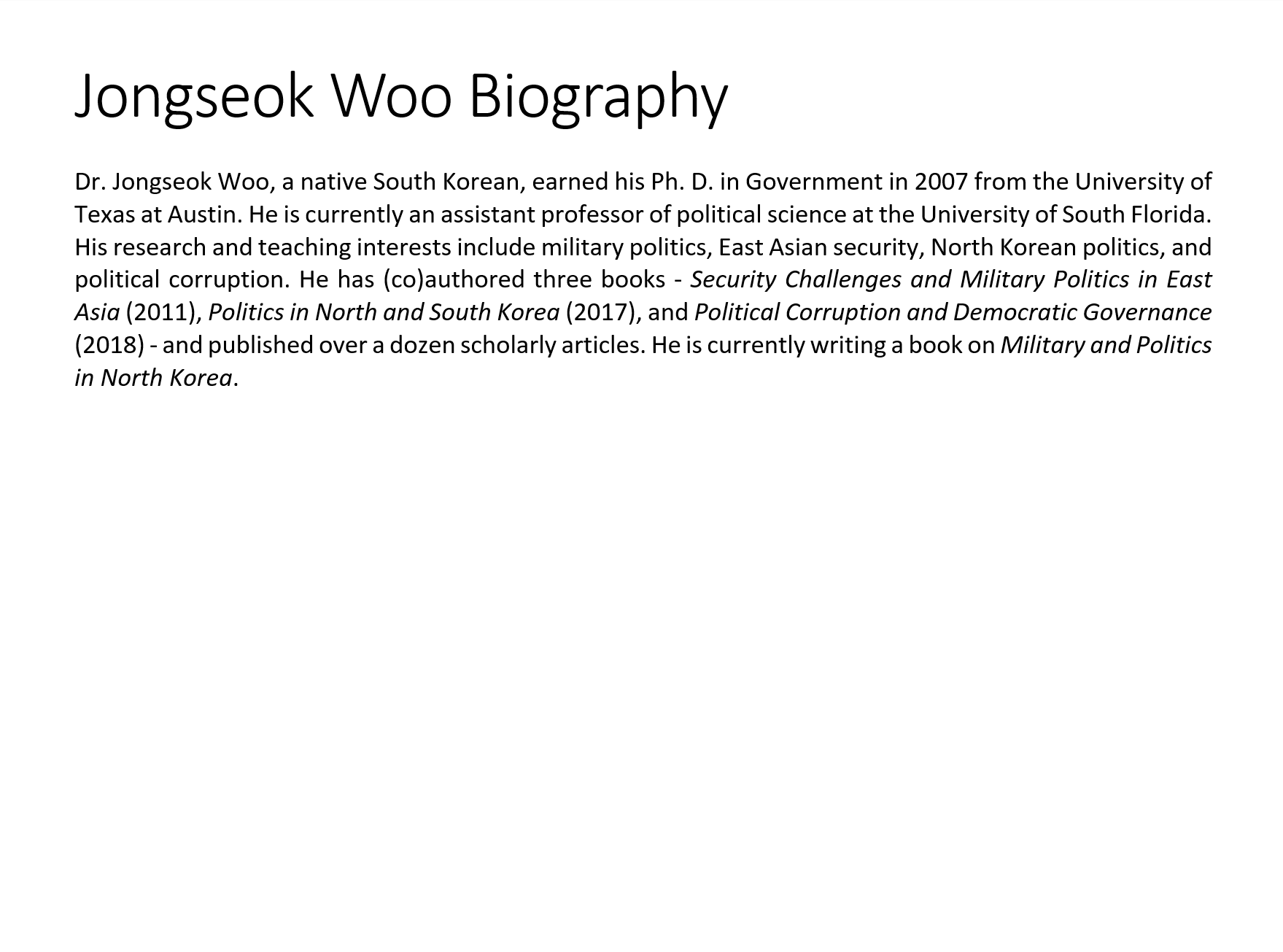Normalizing the US-DPRK Relations: Nuclear Weapons and Political Changes in Pyongyang
“Normalizing the US-DPRK Relations: Nuclear Weapons and Political Changes in Pyongyang”
SMA hosted a speaker session with Dr. Jongseok Woo (University of South Florida) as a part of its SMA Korea Strategic Outcomes Speaker Series. This speaker session supported SMA’s Korea Strategic Outcomes project. For additional speaker sessions and project publications, please visit the Korea Strategic Outcomes project page.
Date: 8 November 2018
Speaker Session Preview
SMA hosted a speaker session presented by Dr. Jongseok Woo (University of South Florida) as a part of its SMA Korea Strategic Outcomes Speaker Series. Dr. Woo first stated that there are two ways to make mistakes when conflicting ideas or information emerge: 1) by sticking to an established view in the face of conflicting information, and 2) by too easily changing one’s views / beliefs. He then discussed how, despite North Korea’s successful management of a three-generation family rule, the US has remained convinced over the past two decades that its regime will collapse. He further explained that the North Korean economy has been growing despite sanctions, making an economic collapse unlikely. Dr. Woo also spoke about the origins of North Korean nuclear ambition, the different types of ballistic missiles the nation possesses, and the “three shocks” the nation encountered in the 1990s and how Kim Jong-il responded to them. He then outlined the history of Pyongyang’s demands from 1994-2017 and highlighted the major shifts in North Korea’s policy directions. To conclude, Dr. Woo discussed Kim Jong-un’s strategy, summarized the key events that occurred in 2018, and explained the challenges that lie ahead for the key actors involved.
This speaker session supported SMA’s Korea Strategic Outcomes project. For additional speaker sessions and project publications, please visit the Korea Strategic Outcomes project page.
This speaker session was not recorded as per the speaker’s request.
Briefing Materials
Biography
Dr. Jongseok Woo, a native South Korean, earned his Ph. D. in Government in 2007 from the University of Texas at Austin. He is currently an assistant professor of political science at the University of South Florida. His research and teaching interests include military politics, East Asian security, North Korean politics, and political corruption. He has (co)authored three books – Security Challenges and Military Politics in East Asia (2011), Politics in North and South Korea (2017), and Political Corruption and Democratic Governance (2018) – and published over a dozen scholarly articles. He is currently writing a book on Military and Politics in North Korea.

Comments